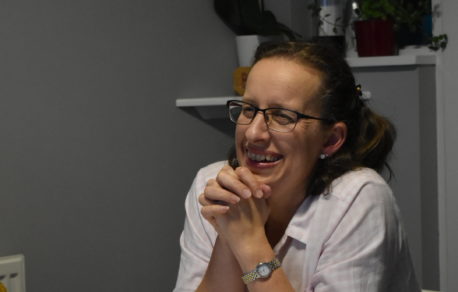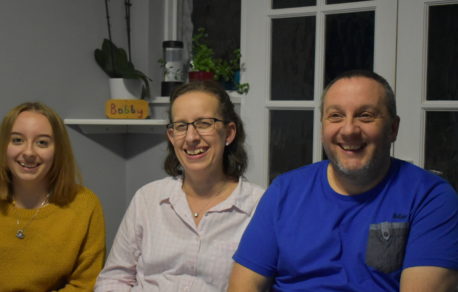
What is social anxiety and how can I manage its symptoms?
Dr Stefanopoulou is the Consultant Clinical Psychologist for Rightsteps at Turning Point. She has also worked in a number of NHS settings and has a special interest in neuropsychology and the treatment of common mental health disorders, such as depression, anxiety, panic, post-traumatic stress disorder (PTSD) and Obsessive Compulsive Disorder (OCD). In this blog, Dr Stefanopolou looks at social anxiety and some strategies to help.
What is social anxiety?
We all experience anxiety. Anxiety often helps us to do better; many professional athletes use their anxiety in order to improve their performance. A bit of anxiety can speed up our reactions and provide us with instant energy. But too much anxiety can also take away our confidence. Social anxiety is more than feeling a bit anxious or shy.
Social anxiety disorder (SAD), also called social phobia, is a long-term and overwhelming fear of social situations.
It can leave us feeling excessively anxious of being judged, e.g. when meeting new people or speaking in front of others.
Social anxiety can be very distressing and have a big impact on our life; it affects everyday activities, confidence, relationships and work or school life. We may feel anxious just thinking about these situations and avoid them altogether. Signs and symptoms of social anxiety can include persistent:
- Fear of situations in which you may be judged or criticised (e.g. when making presentations)
- Worrying that others will notice that you look anxious (e.g. if you appeared sweating, blushing, or having a shaky voice) and think negatively of you
- Worrying about embarrassing or humiliating yourself in front of others
- Intense fear of interacting or talking with new people (e.g. dating)
- Avoiding being ‘the center of attention’ in meetings
- Intense fear and anxiety during speaking or performing in public (or even thinking about doing this)
- Spending time after a social situation ‘analysing’ your performance and identifying mistakes and flaws in your interactions
Top tips to tackle social anxiety
Although anxiety is common, it isn’t easy to ‘snap out of it’. With the right help and support, you can feel better. Here are some tips that you may find helpful.
- Avoid avoidance. When feeling anxious, you may want to avoid or run away from situations that are making you feel tense. The more you avoid these situations, the more your anxiety and fear will keep going.
- Stay with the anxiety. Set a realistic time to stay in a slightly fearful situation for (e.g. 10 minutes). Keep staying in this situation until you are comfortable in it (this may take 5 attempts or more). Once comfortable in this situation, celebrate your efforts. Acknowledging your successes can keep you going. Then, move on to a situation that is making you a bit more anxious, and so on. Follow the same steps again.
- Challenge your thinking. When feeling socially anxious, you may believe that others will judge you negatively — “They’ll think I’m stupid” etc. The truth is, just because you think something, doesn’t mean it’s true. Although such thoughts may seem believable, they are often unrealistic and unhelpful.
- Drop your safety behaviours. We often use ‘safety behaviours’ in order to reduce our anxiety (e.g. hair over face when talking, avoiding eye contact, fiddling with something or tensing up to hide our shaking, using alcohol or drugs to increase our confidence etc.). Try to gradually drop your safety behaviours one at a time. You will find out that there is nothing to fear and that you can cope without them, no matter what the situation.
What can I do about my social anxiety?
For many people, getting professional help is important. If your symptoms persist or worsen, you may want to speak to your GP or a mental healthcare professional. They can discuss your difficulties in more detail and provide you with information about available treatment options, such as Cognitive Behaviour Therapy (CBT), medication or both.
If you or your partner is living with social anxiety and would like some support, we can help. Our Wellbeing Hub has free clinically approved resources to help you manage social anxiety and other conditions. And if you prefer to speak to someone, we can fund counselling sessions too. Get in touch with us today.



